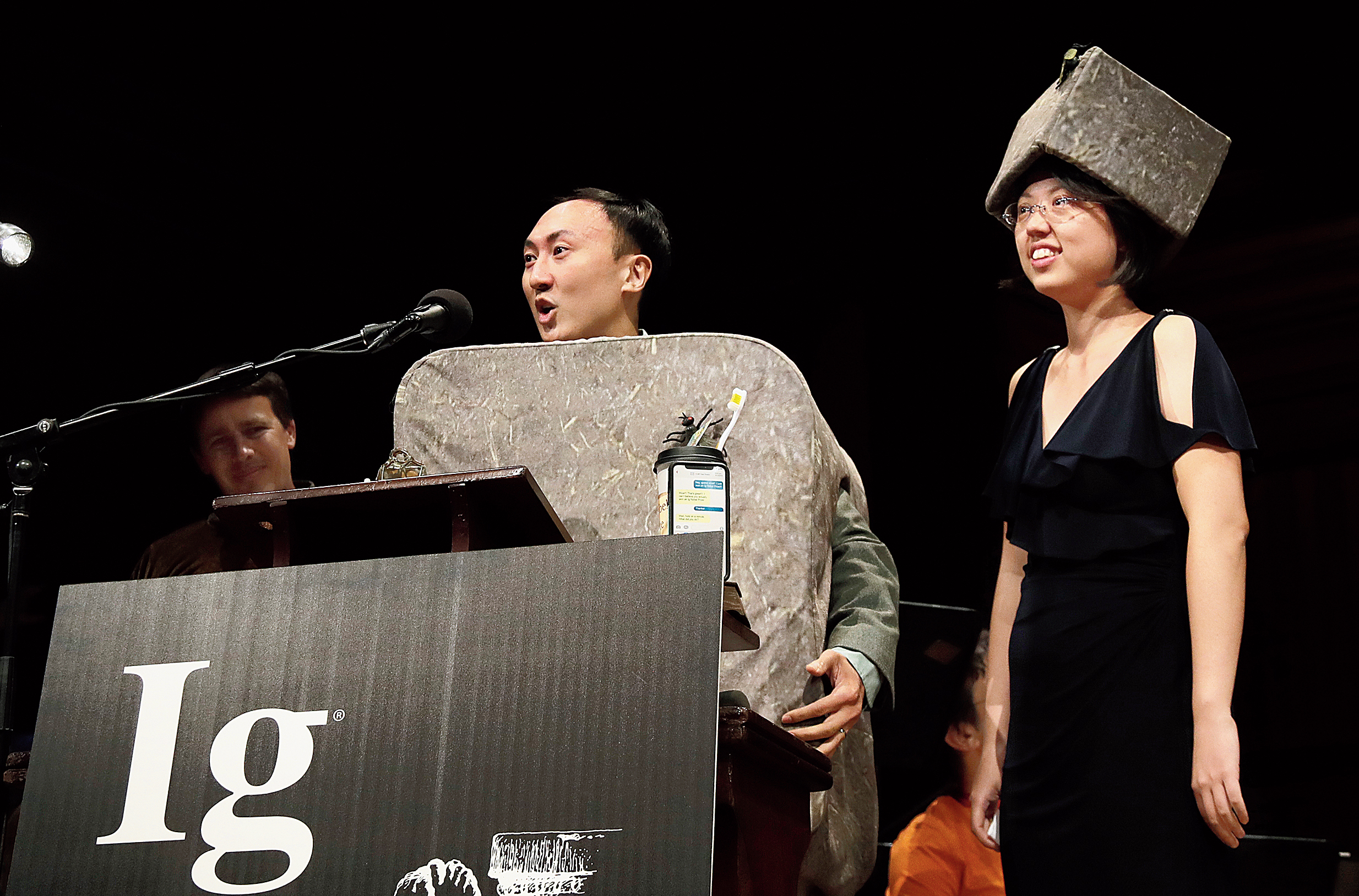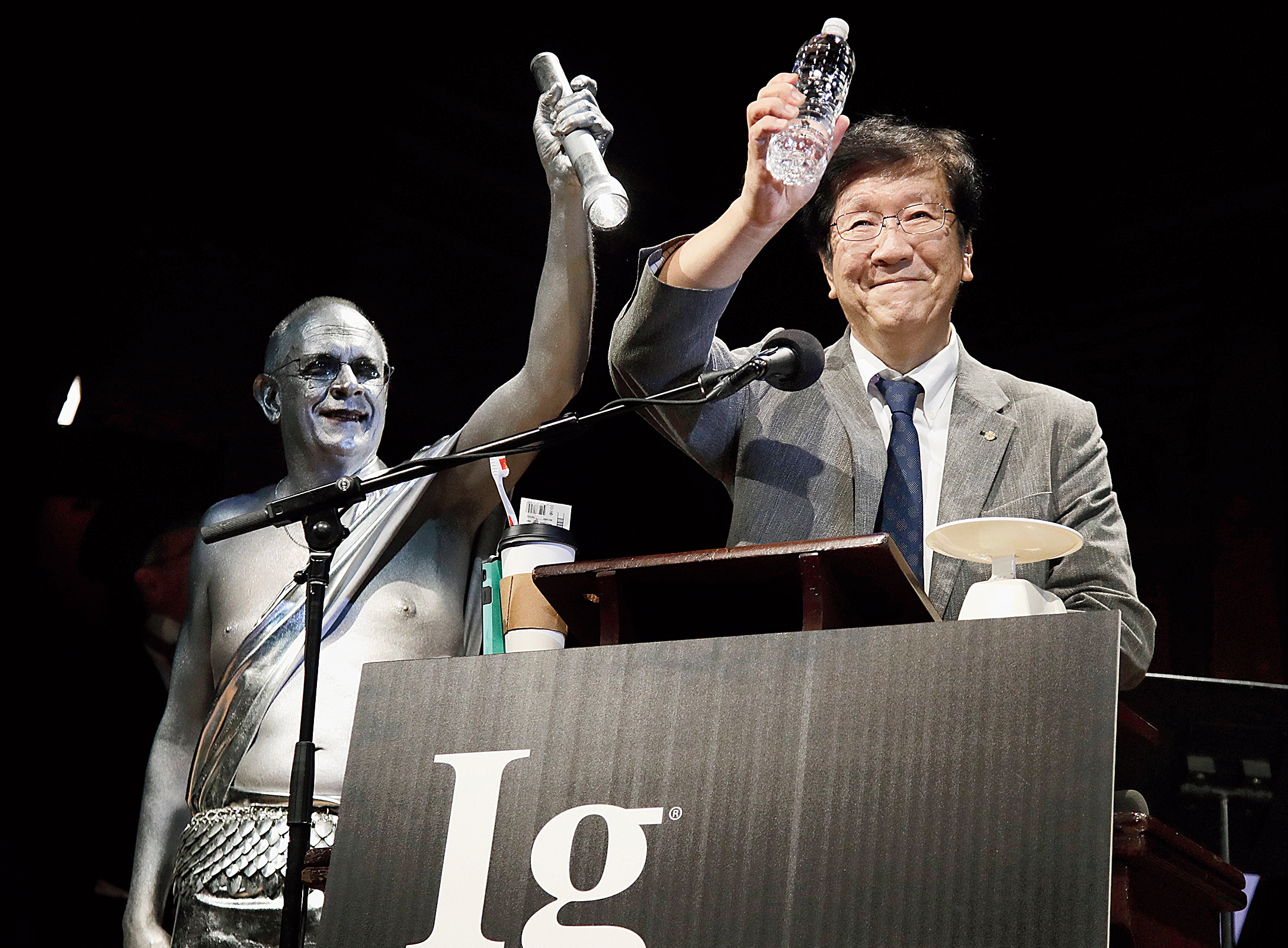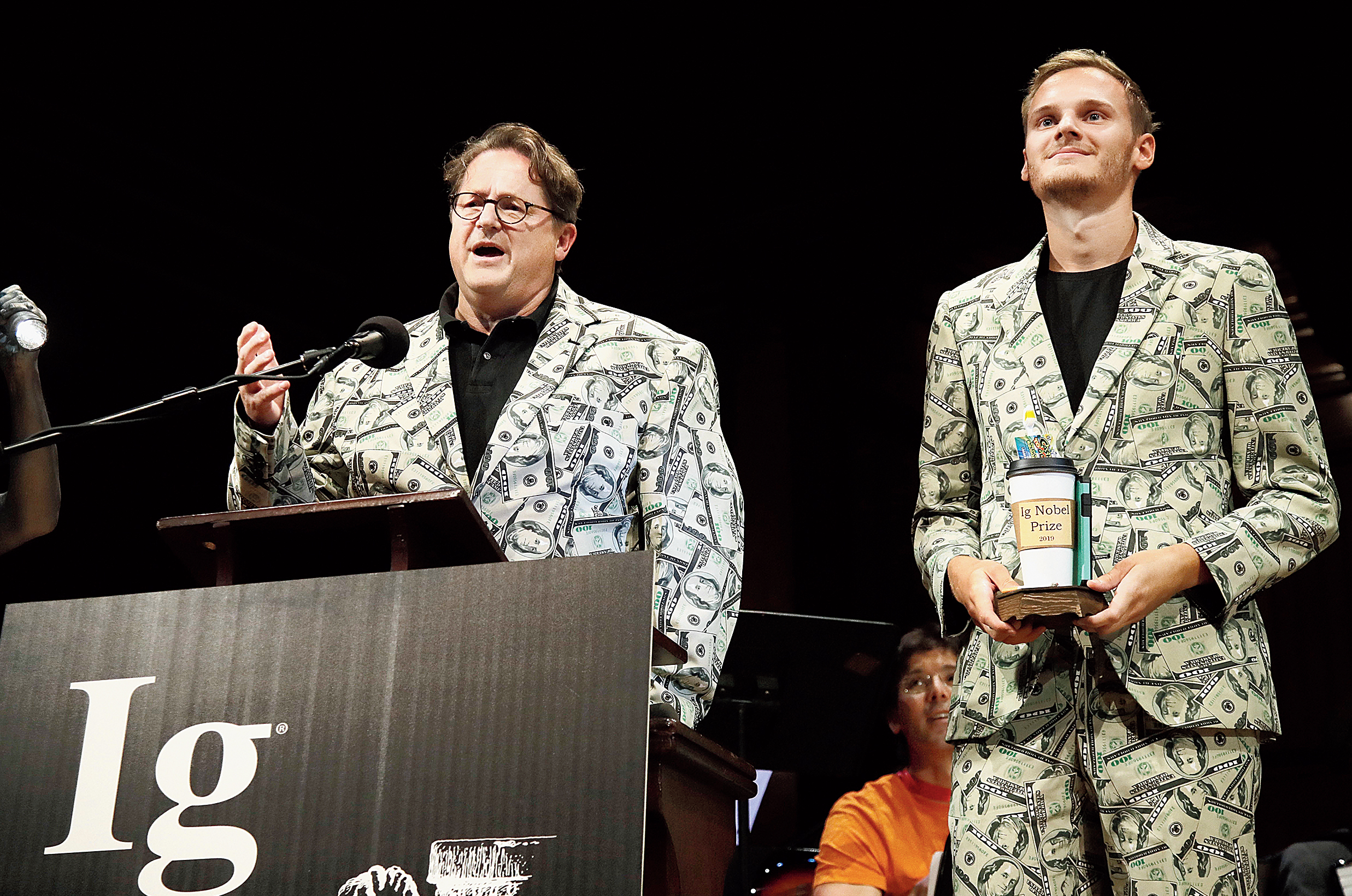For about 90 minutes on Thursday, a ceremony in an auditorium at Harvard University brought together elements of academe and the absurd.
Men and women hurled paper planes — twice — at a man on the stage. Scientists joined musicians in performing a boisterous mini-opera about bad habits such as fidgeting, nose-picking and yakking.
And three Nobel laureates gave away annual prizes for some of the funniest science projects on the planet.
Dutch and Turkish scientists who found that soiled and sticky rupee notes have fewer bacteria than clean and crisp dollar bills were among those awarded for research that “first makes people laugh and then think”.
The 2019 Ig Nobel Prizes, organised by the Annals of Improbable Research, an international science humour magazine, have also gone to an Iranian who has designed a diaper-changing machine and a British neuroscientist who measured the pleasure of scratching an itch.
Fifteen winners received the prizes — an Ig Nobel cup, a certificate, a now-obsolete 10 trillion Zimbabwe dollar bill, and a handshake with real Nobel laureates — at a ceremony punctuated by an eight-year-old girl tasked with enforcing time limits on the winners’ speeches by shouting onstage: “Please stop, I’m bored.”
Nobel laureates Jerry Friedman (physics, 1990), Eric Maskin (economics, 2007) and Richard Roberts (physiology, 1993) gave the awards away at the event, directed by Annals editor Marc Abrahams.
In line with the Ig Nobel tradition, spectators threw paper planes at a volunteer at the start and midway through the ceremony.
Medical microbiologist Andreas Voss from Radboud University in the Netherlands and two colleagues bagged the prize for showing through peer-reviewed studies that from the perspective of bacterial growth, Croatian kuna and Indian rupee notes are cleaner than the US dollar or Romanian leu notes.
“There’s a public health lesson here: clean and crisp currency notes are not always clean and sticky and soiled notes are not always dirty,” Voss told The Telegraph. “So, wash hands always.”
The experiments by Voss and his colleagues Timothy Voss and Hadip Gedik suggest that the makeup of currency notes influences bacterial survival.

David Hu and Patricia Yang after receiving the Ig Nobel award in physics for studying how and why wombats produce cubical poo. (AP)

Shigeru Watanabe receives the Ig Nobel award in chemistry for estimating the total volume of saliva produced per day by the average five-year-old. (AP)
The polymer-structure of the Romanian leu facilitated the growth and transmission of drug-resistant bacteria, making it the worst among the seven currency notes the researchers had examined. Andreas Voss says countries with polymer-based currency should take note.
Italian health scientist Sylvano Gallus won the prize for collecting evidence that pizzas, long viewed as junk food, protect people from cancer and heart attacks “if made and eaten in Italy”.
“We found people who consumed pizza one or more times per week had lower risks of digestive tract cancers and heart attacks,” Gallus said.
“This likely has something to do with the ingredients we use in Italy and other dietary factors there. Pizza in Italy is likely a marker for healthy lifestyle.”
“We don’t recommend eating pizza with pepperoni,” Gallus said before being shouted away from the stage by the eight-year-old timekeeper.
Fluid mechanics specialist David Hu from Georgia Tech in the US and his colleagues were honoured for research that has unravelled how wombats, a marsupial found in Australia, make cube-shaped poo.
“It’s somewhat like lava cooling — under certain circumstances, you get special geometry,” said Hu, who had earlier won an Ig Nobel in 2015 for testing the biological principle that nearly all mammals empty their bladders in about 21 seconds, plus or minus 13 seconds.
His colleague Patricia Yang, who worked on the wombat study, said the cube-shaped poo was ultimate proof that “you can get a square peg in a round hole”.
UK-based neuroscientist Francis McGlone won the prize for showing that the pleasure of scratching is higher on the ankle and back than on the forearm. His work shows differences in itch intensity, the effectiveness of the scratch and the associated pleasure on different parts of the body.
Iran’s Imam Farahbakhsh was named the winner for a machine that washes an infant and changes its diapers automatically. The patent on it granted by US patent examiners last year claims that the apparatus allows operators to change an infant’s diaper without using their hands.
Japanese paediatric dentist Shigeru Watanabe, who measured the amount of saliva a five-year-old child produces per day in a study performed 24 years ago, brought along his “subjects” — his two sons — to the ceremony.
Rainer Dumke from Singapore and his colleagues won the prize for discovering that magnetised dead cockroaches behave differently from magnetised live cockroaches. German psychologist Fritz Strack was awarded for finding out that holding a pen in the mouth does not make people happier.
Abrahams closed the show with a traditional challenge to scientists: “If you didn’t win an Ig Nobel prize tonight — and especially if you did — better luck next time.”
McGlone and Farahbakhsh were among awardees who could not attend the ceremony.
Several Indians have received the Ig Nobel in the past, including Bangalore scientists in 2001 for studying the habit of nose-picking and a Kerala scientist in 2003 for using a mathematical equation to calculate the surface area of elephants.











